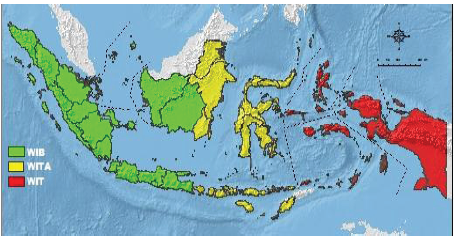Indonesia’s rapid digitalization has brought with it a dark underside, marked by an alarming rise in cybercrime, especially identity theft. According to the data from Kantor Staf Presiden, there are over 220 million internet users as of 2024 that show Indonesia has embraced digital transformation.
However, this surge has also exposed vulnerabilities, with frequent personal data breaches leaking sensitive information such as names, addresses, ID numbers, phone numbers, and banking details. Cybercriminals exploit this data, engaging in illegal online loans, phishing scams, and unauthorized financial transactions that harm individuals and undermine trust in digital systems.
The Personal Data Protection Law (UU PDP), enacted in 2022, was designed to handle these issues by setting legal frameworks for data protection, similar to the European Union’s General Data Protection Regulation (EU GDPR). This law requires businesses to obtain user consent before data collection, enforce data security measures, and notify affected individuals of breaches.
However, implementation has been lackluster. Law enforcement agencies struggle with inadequate resources and expertise, which hampers their ability to prosecute offenders effectively, particularly those operating from overseas. The cross-border nature of cybercrime complicates these efforts, making international cooperation crucial yet challenging.
One of the most troubling aspects of the cybercrime wave in Indonesia is the proliferation of illegal online lending platforms. Cybercriminals use stolen personal information to impersonate unsuspecting victims and secure loans, leaving individuals with debts they did not incur. This issue is exacerbated by the informal nature of these fintech operations, which often escape regulatory scrutiny.
Moreover, identity theft also fuels e-commerce scams, where stolen data is used to make unauthorized purchases or sell counterfeit goods, further eroding consumer confidence in online markets. Phishing scams have evolved in sophistication, with fraudsters creating emails, fake websites, and SMS messages that imitate legitimate sources to steal personal information. These scams frequently target online banking users, causing unauthorized withdrawals and significant financial losses.
Social media and e-commerce account takeovers are also common, with criminals using these platforms to solicit money or additional personal data from the victim’s contacts. Despite the introduction of UU PDP, its enforcement has faced critical challenges. The absence of a centralized regulatory body with strong enforcement powers, akin to Europe’s data protection authorities, means that compliance is inconsistent and often inadequate. This issue is compounded by the poor cybersecurity practices among many Indonesian businesses, particularly small and medium enterprises, which remain vulnerable to breaches.
Large corporations and financial institutions have not been immune to these problems, as evidenced by significant data leaks in recent years. To address these vulnerabilities, Indonesia must prioritize the strengthening of UU PDP enforcement and the establishment of a robust regulatory body to oversee data protection practices effectively. This authority could play a crucial role in ensuring that all entities handling personal data adhere to stringent security protocols. Improving the technical capacity and resources of law enforcement agencies is also essential for tracking and prosecuting cybercriminals more effectively.
Moreover, public awareness and digital literacy are critical in combating identity theft. Many Indonesians are not fully aware of their data rights under the UU PDP or how to protect themselves from cyber threats. National campaigns and educational programs can empower citizens with the knowledge needed to safeguard their personal information. Such initiatives should be integrated into educational curricula at all levels, ensuring that future generations are better equipped to navigate the digital world securely. Business compliance with UU PDP also needs to be rigorously enforced.
Companies should be mandated to implement advanced security measures such as data encryption, two-factor authentication, and regular security audits. Those that fail to protect user data should face severe penalties. This approach would not only enhance data security but also restore public trust in digital platforms.
Finally, enhancing collaboration between public and private sectors is crucial. Partnerships between government bodies, technology companies, and financial institutions can foster the development of more secure systems and effective responses to cyber threats. These collaborations can also facilitate the sharing of best practices and technologies, further strengthening the nation’s cybersecurity infrastructure.
In conclusion, while Indonesia has made significant strides in digitalization, the accompanying rise in cybercrime, particularly identity theft, poses a significant threat to the nation’s economic and national security. Strengthening the enforcement of the UU PDP, enhancing cybersecurity measures across all sectors, and boosting public awareness are imperative. By taking these steps, Indonesia can protect its citizens from cyber threats and secure its digital landscape, ensuring that the digital economy continues to thrive without compromising the safety and security of its people

